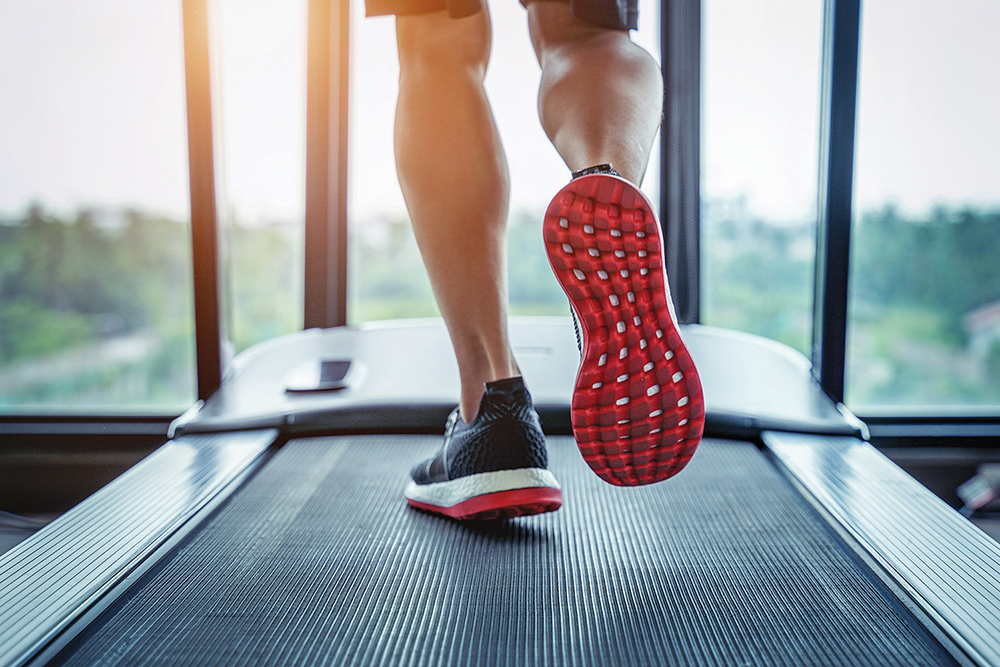
Matza balls, shul, brisket, shul, kugel, and more shul. Starting an exercise routine around Rosh Hashanah is just not going to happen. There are way too many heavy meals and very little free time for that entire first month of the Jewish year. But January is the perfect time to start! The calendar is pretty empty for the next few months, at least until Pesach, and when Rosh Hashanah comes around next year, you could be in the best shape of your life.
There are countless benefits to incorporating an exercise routine into your weekly schedule. Some of them include: weight management, prevention/control of chronic conditions such as diabetes, heart disease, arthritis and depression. It can improve the quality of your sleep, improve your energy levels, prevent osteoporosis, and help with your digestive system.
“That sounds great, but how in the world do I get started?”
Here are some practical tips that I give to my clients who enroll in our Health and Wellness program. Instead of just messing around with exercises at a gym or in your home, I want my clients to engage in intentional exercise, a focused plan that will be effective and efficient.
There are basically three components to a good exercise routine: cardiovascular exercise, resistance training and stretching. Let’s talk about each one.
Cardiovascular Exercise: “How hard should I push myself?” The goal is to raise your heart rate to a level that will challenge your cardiovascular system, but in a safe way. The general formula for the target heart rate is (220 minus your age) x 75%. So for example, a 50-year-old person should aim to get their heart rate up around 128 BPM (beats per minute). This can be accomplished on a treadmill, bike, elliptical, rowing machine, stairmaster, or jogging outside. I always recommend that clients purchase a fitness watch that can easily monitor your heart rate in real time and will record it so that you can see the progress as your cardiovascular system becomes more efficient over time.
Stretching should be incorporated into a good exercise routine as well. I find it to be most beneficial to perform the stretches after the cardio part of the workout, when blood is circulating well throughout your body. I generally recommend compound stretches, like many of the yoga poses. Cat-camel, Child’s pose, and Cobra are some of the best stretches to get multiple muscle groups in one stretch.
Resistance Training: “How much weight should I be lifting?” Not only can resistance training help with bone/joint health, but by creating hypertrophy (increasing the size of your muscles) your body will continue to burn calories even after the workout ends since muscles are metabolically active. Here too, I recommend for people to choose compound exercises—exercises that use multiple muscle groups in one exercise. For example, try push ups/chest presses (works the pectoralis, triceps and deltoids muscles) instead of bicep curls (just works biceps). Or squats/leg presses (works the gluteal, hamstring and quadriceps muscles) instead of knee extensions (only works the quadriceps muscle). The general guideline is to choose a resistance level that allows you to perform around 15 repetitions, but not much more than that. You then want to perform three to five sets of that particular exercise, taking a 60-second break in between sets.
The goal is to gradually work up to a 45 minutes exercise routine three times a week: 20 minutes of cardio, five minutes of stretching, and 20 minutes of resistance training. Start with one time a week and gradually push yourself to exercise three times a week. It’s not always easy, but it’s a realistic goal for most people to work towards.
If you’d like more help in setting up an appropriate and realistic exercise routine, under the guidance of a licensed physical therapist, please reach out to Wasserman Orthopedic and Sports Rehab and ask about our Health and Wellness program.
Noah Wasserman, DPT, CSCS is the owner of Wasserman Orthopedic and Sports Rehab in Englewood, NJ. (201)371-3271. wassermanorthorehab.com












